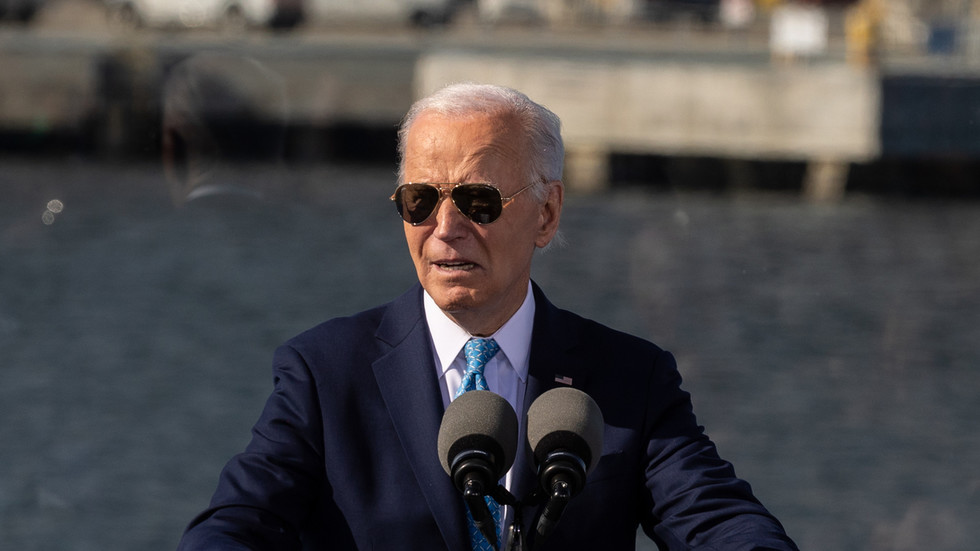Among the signatories are such well-known writers as Sally Rooney, Booker Prize-winning novelist Arundhati Roy, and Percival Everett.
By HANNAH BROWN OCTOBER 30, 2024 01:10 SALLY ROONEY
(photo credit: HENRY NICHOLLS/REUTERS)
SALLY ROONEY
(photo credit: HENRY NICHOLLS/REUTERS)
More than 1,000 authors signed an open letter that calls for a boycott of Israeli cultural institutions, among them Israeli publishers, festivals, publications, and literary agencies which, in the eyes of the signatories, have “remained silent observers” in the “oppression of Palestinians.”
Among the signatories are such well-known writers as Sally Rooney, the author of Normal People; Booker Prize-winning novelist Arundhati Roy, who wrote The God of Small Things; and Percival Everett, whose books include Erasure. The letter was put together by the Palestine Festival of Literature (PFL) and is being circulated online.
The letter reads, in part: “The overwhelming injustice faced by the Palestinians cannot be denied. The current war has entered our homes and pierced our hearts. This is a genocide as leading expert scholars and institutions have been saying for months... Israeli officials speak plainly of their motivations to eliminate the population of Gaza, to make Palestinian statehood impossible, and to seize Palestinian land. This follows 75 years of displacement, ethnic cleansing, and apartheid.”
Rooney previously made headlines when she refused to allow her books to be translated into Hebrew, and this letter would appear to encourage other authors to follow suit.
UK Lawyers for Israel
The Jewish Chronicle reported that UK Lawyers for Israel (UKLFI), a group that advocates on legal issues, has condemned the letter as “plainly discriminatory against Israelis.” It cited the UK Equality Act 2010.
Jonathan Turner, CEO of UKLFI, said in a letter to the Publishers Organization: “This boycott is plainly discriminatory against Israelis. The authors do not impose similar conditions on publishers, festivals, literary agencies or publications of any other nationality... The boycott is also contrary to laws prohibiting discrimination on grounds of nationality in many other countries around the world... most US States have adopted legislation providing for sanctions against participants in boycotts targeting Israel.”
He also called the allegations in the letter, notably the accusation of genocide, false. He cited the fact that the former president of the International Court of Justice (ICJ) said in a BBC interview that the court had not decided that there was a plausible case that Israel had committed genocide, as had been incorrectly reported by some media.
In addition, he noted that the letter cites a Palestinian death toll in the current conflict at 43,362 without specifying that the figure comes from the Hamas-controlled health ministry in Gaza, which does not differentiate between civilians and combatants.
In an article criticizing the call for a boycott in The Free Press, Lionel Shriver, the author of We Need to Talk About Kevin, wrote, “Ironically, like most Western literary subcultures these days, Israel’s is predominantly left wing, so the Rooney brigade is seeking to punish its natural political allies. But the intention is not only aimed at punishing Israel’s tiny cultural institutions.
The boycott seeks to go well beyond the signatories and intimidate all authors into withdrawing their work for consideration at Israeli publishing houses and refusing to participate in Israeli festivals. That includes writers who disagree with the organizers and do not believe that the IDF’s effort to root out Hamas qualifies as genocide, as well as a range of Jewish writers in and outside of Israel whose views on this war may be tortured or finely nuanced because we must all speak as one.
Stay updated with the latest news!
Subscribe to The Jerusalem Post Newsletter
As ever, a single perspective is permissible. Writers used to enjoy conflict, complexity, contradiction – duking it out on paper or raucously talking over each other on a festival panel. Now we chant in a unified chorus.”
Shriver went on to say that she felt that the best way to get her viewpoint across to readers around the world would be for her work to be published in as many languages as possible: “And in case you might be reading this, Sally, whether I sell Hebrew translation rights is none of your business. Besides, to the degree that my fiction is the best expression of my own larger political outlook, disseminating my novels as far and widely as possible constitutes the optimal method of promoting that outlook. Publishing in translation sure beats prissily refusing to allow my precious sentences to be corrupted by the language of Jews.”
Brendan O’Neill, writing in the British publication The Spectator, asked facetiously when Rooney and her cohorts would begin boycotting the US and Britain due to the wars they have waged in the Middle East, and said, “I am just curious as to why they always single out Israel. I just want to know why this country, more than any other, gets their hearts pounding in fits of fury. Why do its military maneuvers bother them so much more than ours, or America’s, or France’s, or Turkey’s, or Iran’s, or China’s? (This list is endless.) Why does the Jewish State live rent-free in the heads of the right-on?...
“And now literary bigwigs promise not to attend Israel-linked book festivals or write for Israel-linked publications. Is this activism or bigotry? To treat one nation – and one nation alone – as so immoral, foul, violent, and despicable that all interaction with it must cease surely belongs more to the realm of prejudice than politics, of emotionalism more than rationalism. I’m just going to say it: if you devote yourself to making your life Israel-free while happily buying Chinese-made things holidaying in Turkey or letting your books be republished in Iran, then you might not be the good person you think you are. Quite the opposite.”

 By The Jerusalem Post (World News) | Created at 2024-10-30 00:00:06 | Updated at 2024-10-30 03:28:57
4 hours ago
By The Jerusalem Post (World News) | Created at 2024-10-30 00:00:06 | Updated at 2024-10-30 03:28:57
4 hours ago



